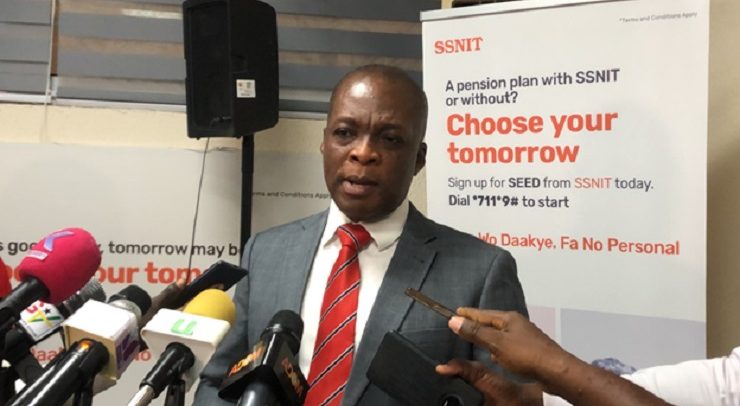Joseph Poku
The Social Security and National Insurance Trust (SSNIT), says it has enough reserve capable of paying beneficiaries of the scheme as well as fulfilling its financial obligation beyond 2036 contrary to some media reports.
Media reports last week suggested that SSNIT would not be able to pay pension benefits of its members by 2036 as a result of depletion in reserves following valuation report by the International Labour Organisation (ILO) in December 2020.
But speaking at a news conference yesterday in Accra to clarify various portions of the report, the Chief Actuarial Officer of SSNIT, Joseph Poku, said its outfit provided all the data to ILO as part of requirements to subject its operations to the international body for valuation at least every three years.
He said it was therefore important that sections of the report were explained for the benefits of the general public who may not understand how the valuations were done.
He said apart from the projections and predictions made by ILO which could not be refuted having worked with them to produce the report, the Trust has also rolled out several policies and programmes to fund its operations over the years, despite the predictions by the ILO.
According to him, the 2011 valuation projected that if contribution rates were not increased in the future, the annual expenditure on benefits and administration expenses would exceed the income from contributions and the fund’s assets from 2019 onwards.
He noted that the reserve was projected to be exhausted by 2031 unless the contribution rate was increased to 16% or the benefit structure changed.
He mentioned that the 2014 valuation report also projected annual expenditures to exceed total income thus contributions, investment income and other income in 2035 where as the 2017 valuation report projected that total income will no longer be sufficient to pay for annual expenditures in 2032.
Mr. Poku said despite all these predictions, the Trust has never defaulted and will not default in paying benefits when due.
By Ebenezer K. Amponsah


